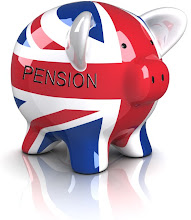Equity volatility has fallen to a 27-month low. The much-watched Chicago Board Options Exchange's VIX index dipped below 18 per cent this week, its lowest level since October 2007. A year ago, it was over 42 per cent.
This is a sign that investors are less fearful of big falls in share prices. One interpretation of these numbers is that the probability traders attach to the S&P 500 falling 5 per cent or more in the next month has halved, from 34 per cent last January to 17 per cent now.
It could also be a sign that investors have become worryingly complacent. Since the credit crunch began in August 2007, there's been a strong correlation (0.54) between the VIX index and subsequent six-monthly changes in the All-share index, with a low VIX leading to bad returns and a high VIX to good ones. If this relationship continues to hold, there's a four-fifths chance of the market falling between now and July.
But the link between the VIX and subsequent returns changes over time. In bear markets, a particular level of the VIX leads to bad returns, but in bull markets it leads to good ones. It could be, therefore, that the low VIX signals not that investors are over-confident, but that the trade-off between volatility and subsequent returns has improved.
One reason to believe this is that the economy is recovering, a fact w hich is usually accompanied by lower volatility. Economists expect figures later this month to show that the UK joined other economies by pulling out of recession in the fourth quarter, whilst analysts expect UK companies' earnings per share to grow by 27.5 per cent this year. "It's far too early in the cycle to dump equities," says Philip Isherwood, equity strategist at Evolution Securities.
Whether the fall in volatility is warranted or not, it's having a beneficial effect - it's led to a spate of bond issues, of which Manchester United's is one of the most prominent.
The connection here is that lower equity volatility is a sign that investors believe the chance of disaster has declined. This means the chances of firms defaulting on their debt have fallen, and so investors have become happier to buy corporate bonds; there has for years been a huge correlation between equity volatility and credit spreads. In this sense, lower volatility is helping to end the credit crunch.
by: Chris Dillow
Subscribe to:
Post Comments (Atom)





No comments:
Post a Comment